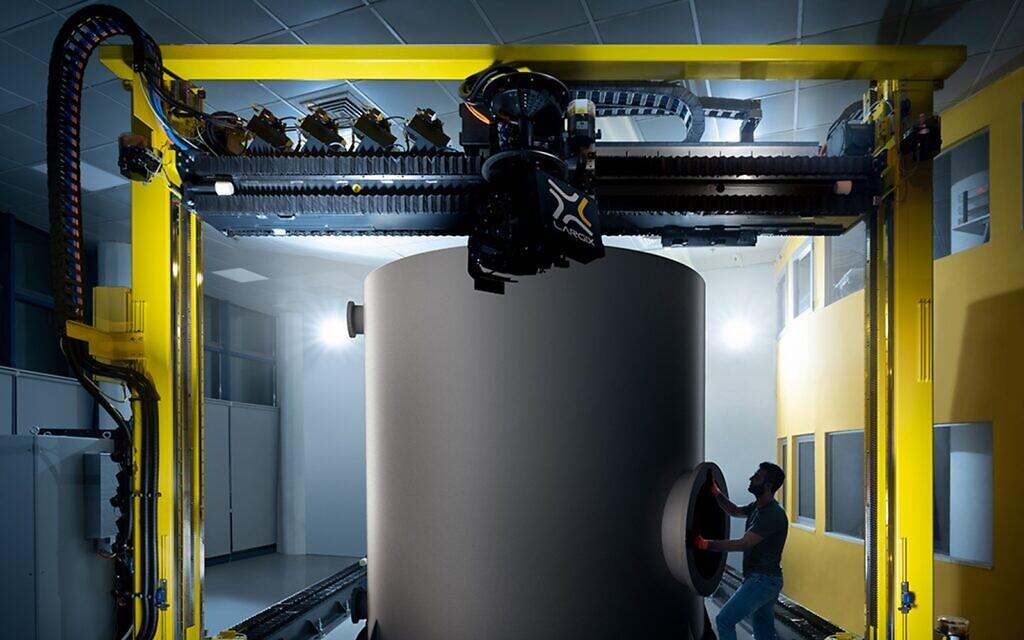
Storing and transporting hazardous liquids is a dangerous business. The secure, 13-foot-high storage tanks currently produced by CGK Group, based in Bruges, Belgium, are all hand-made – an expensive and labor-intensive process.
Now, using the world’s largest robotic 3D printing platform created by Largix, an Israeli startup, CGK expects to slash the cost of creating the tanks.
“This will be a gamechanger for us,” says Geert Denutte, the founder of CGK. “Nobody else is doing such technology. We estimate it will save us up to 50 percent in costs.”
In addition, because the technology is automated, it can work “25 hours a day,” says Denutte, dramatically cutting the time required to make the tanks.
Until now, 3D printers have been unable to produce large industrial products at industrial speeds and costs. Largix’s Cold 3D Printing technology will use smart sensors with real-time data and machine learning to produce large objects with the required bonding and welding strengths. It is the first system that makes 3D printing possible for real industrial production, using polypropylene and polyethylene – common thermoplastic polymers that nobody else is capable of printing.

CGK executives were so impressed by the Largix technology that they decided to become investors in the company back in 2019. Now they are expecting delivery of a 3D printing machine that “will change completely” the company’s production of room-sized storage tanks from common plastics, says CGK’s CEO Tijl Charle.
“Largix is the only company that can print in these materials because of their technology,” says Charle. “Nowadays, we produce our made-to-measure vessels out of semi-finished products. This needs a lot of manual labor next to a significant amount of scrap material. The platform will reduce our dependency on labor, increase our productivity and, next to the substantial labor-cost savings, the Largix Robotic Production Platform brings new opportunities in terms of shapes and new materials.”
“3D printing technologies are mainly capable of making models and prototypes from polymers,” says Ronen Orr, co-founder of the company with Amir Sheelo. “Both of us have more than 20 years’ background in traditional industries, making traditional products. We decided to develop a 3D printing technology that would be able to industrially produce real products reinventing traditional, labor-intensive, design and production of custom-made products made of polymers and composite materials, across diversified industries.”
Largix decided first to address the industrial tanks market, seeing significant demand from the food, chemicals and cosmetics industries for large polymeric-based tanks. The company estimates the technology will help manufacturers cut production costs in half and eventually improve overall productivity by 15 times. It will also enable Largix to introduce industrial tanks with features and characteristics that cannot be met today.
“Our next addressable market will be even larger – building and infrastructure construction,” Orr says. “Most custom-made construction is today done manually. We are already engaging with industry leaders to design solutions, based on our proprietary technology, that will deliver major innovation to the construction industry”.
Largix’s platform is the only one currently available that can deliver the scale, cost and materials needed to address industrial production needs, Orr says. The company plans to launch its product this year and expects to see rapid growth.
In October, the company will be presenting at the K Fair in Germany, the largest European trade fair for plastics and rubber.
Largix is now funding on the OurCrowd investment platform. For more information, click HERE.